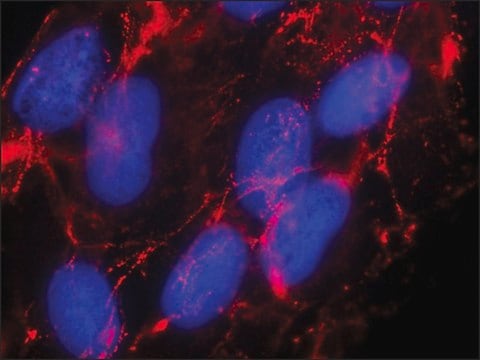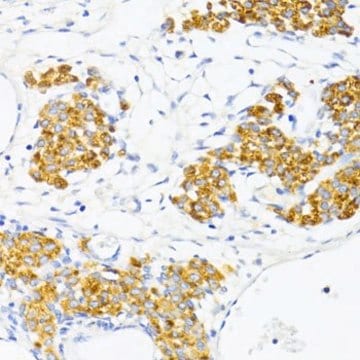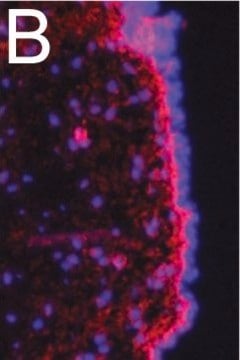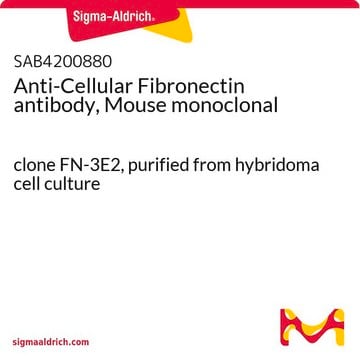MAB1935
Anti-Fibronectin Antibody, CT, clone 868A11
clone 868A11, Chemicon®, from mouse
About This Item
Produits recommandés
Source biologique
mouse
Niveau de qualité
100
300
Forme d'anticorps
purified antibody
Type de produit anticorps
primary antibodies
Clone
868A11, monoclonal
Espèces réactives
human
Conditionnement
antibody small pack of 25 μg
Fabricant/nom de marque
Chemicon®
Technique(s)
ELISA: suitable
western blot: suitable
Isotype
IgG1
Numéro d'accès UniProt
Conditions d'expédition
ambient
Température de stockage
2-8°C
Informations sur le gène
human ... FN1(2335)
Spécificité
Immunogène
Application
Immunohistochemistry, formalin fixed, 10-25 μg/ml
Western blotting at 1-5 μg/ml
Final working dilutions must be determined by end user.
Cell Structure
ECM Proteins
Qualité
Forme physique
Stockage et stabilité
Autres remarques
Informations légales
Clause de non-responsabilité
Vous ne trouvez pas le bon produit ?
Essayez notre Outil de sélection de produits.
Code de la classe de stockage
10 - Combustible liquids
Classe de danger pour l'eau (WGK)
WGK 2
Point d'éclair (°F)
Not applicable
Point d'éclair (°C)
Not applicable
Certificats d'analyse (COA)
Recherchez un Certificats d'analyse (COA) en saisissant le numéro de lot du produit. Les numéros de lot figurent sur l'étiquette du produit après les mots "Lot" ou "Batch".
Déjà en possession de ce produit ?
Retrouvez la documentation relative aux produits que vous avez récemment achetés dans la Bibliothèque de documents.
Notre équipe de scientifiques dispose d'une expérience dans tous les secteurs de la recherche, notamment en sciences de la vie, science des matériaux, synthèse chimique, chromatographie, analyse et dans de nombreux autres domaines..
Contacter notre Service technique








